See where our planet took a turn for the worse in settlement sim Dawn of Man
They're upright, they're making weapons, and they're discovering religion. There goes the neighborhood.
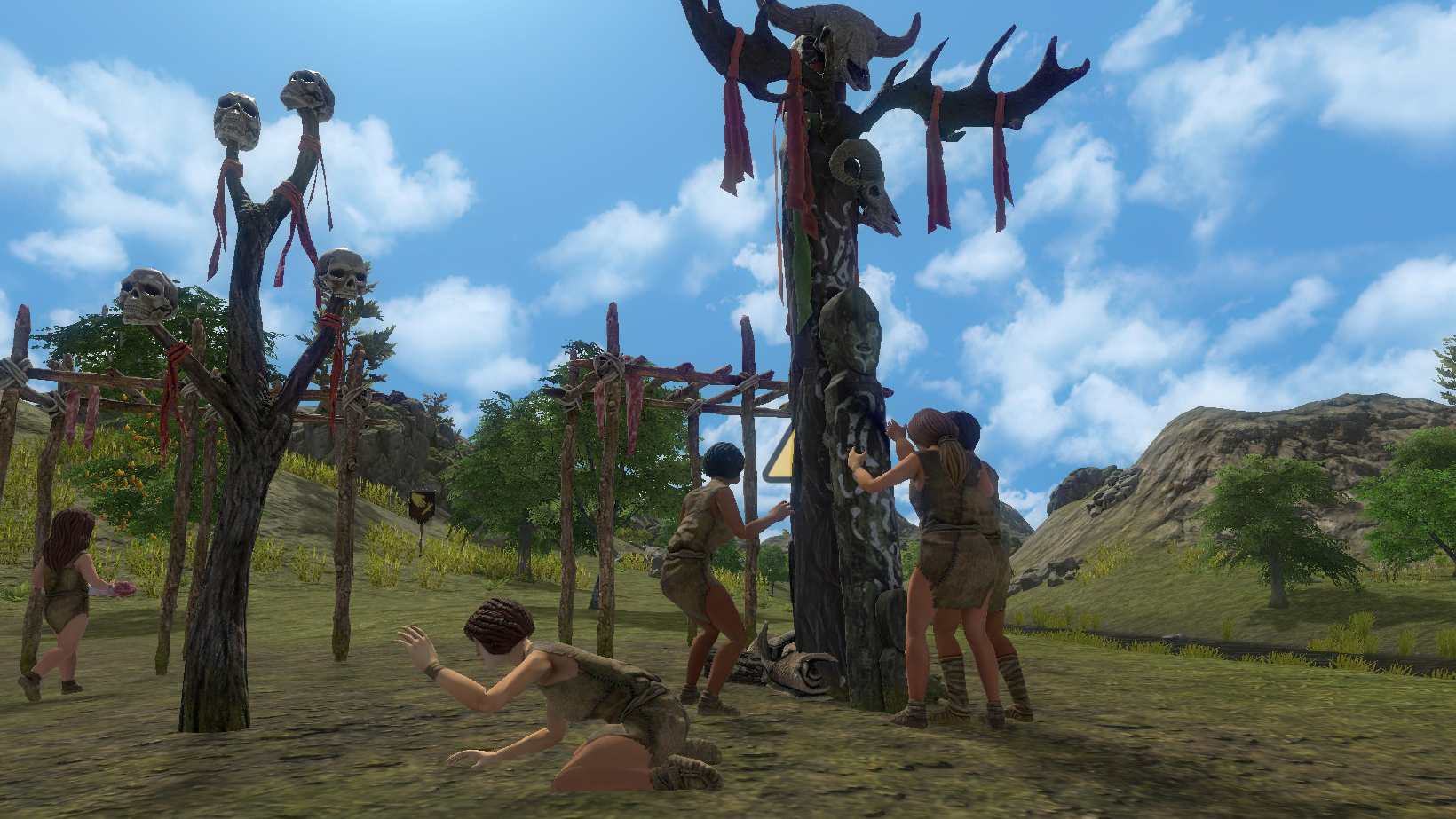
Maybe it's not a great sign for the future of civilization that the only thing that cheers up my Stone Age citizens is crouching down half-naked in front of a sculpture made of human skulls. It's called a Skull Pole, and it's basically the Paleolithic version of Twitter: It's gross and depressing and you know it's probably not doing you any good, but you spend a fair amount of your day staring at it anyway.
This is Dawn of Man, a settlement-building sim, and I've been busy guiding a small collection of grubby humans into a slightly less-grubby future. Beginning in the Stone Age with only sharp rocks and pointed sticks and loincloths, Dawn of Man extends into the Iron Age as you learn to hunt, gather, farm, build, domesticate animals, and eventually invent religions and engage in merciless warfare with other groups of people. Civilization! What a terrible idea it was.
At least there are dogs! After taking care of the basics like telling my humans to pull fish from the river and craft a few spears to kill absolutely anything that moves, I notice the tech tree allows for the domestication of dogs. I should probably use my points to unlock better food preservation (which is a bunch of sticks to drape raw meat over) or maybe slings so I can kill bears from a distance, but I can't help it. I want some doggies in my village.
I spot a wolf pup in the woods and send my most elderly villager over to it (I figure if this goes sideways, at least I'm not risking the entire gene pool), and he waves his arms at the young wolf. Boom, I've got a village dog, and a few more eventually join him. They're useful—they help fend off wild animal attacks, plus they're cute—and they don't need to be fed, subsisting off unseen leftovers.
As you progress you can attract new villagers, provided you've got the tents for them to live in. As tools and meat and animal pelts begin to pile up, you can build storage huts and trade with gatherers from parts unknown. Also, when your villagers aren't hunting, gathering, crafting, or prostrating themselves before the bleached skulls of their ancestors, they're getting down. Kids will occasionally be born, like the little tyke below.
It's fun to sit back and watch from a distance as your tribe goes about their day, but there's also a nice camera mode that lets you zoom in on anything you want for more close-up inspections. I noticed this little village girl has gotten sick, then watched as she drank from the river to cure herself. Then she immediately went back to her job of handling massive slabs of raw meat with her bare hands. I'm sure she's gonna be fine.
Speaking of raw meat, there are lots of wild animals to hunt, from bears to boars to woolly rhinos. The AI in Dawn of Man could maybe use a bit of fine tuning, though. Wild animals have two settings: being completely unaware of primitive humans and other animals, or trying to kill anything and everything in their vicinity.
The biggest gaming news, reviews and hardware deals
Keep up to date with the most important stories and the best deals, as picked by the PC Gamer team.
Below, a couple of bison had wandered into my village so I directed my cavemen to kill them, and while cutting them up for parts a bear just wandered over and started having dinner while another bison headbutted it in the ass. The bear eventually freaked out and started swatting someone, at which point the bison ran off, and a moment later two more bears just wandered through the scene like there weren't a bunch of people and animal corpses everywhere. It makes me wish I could oversee the bear and bison communities, too. I feel like they could use an upgrade their self-preservation instincts.
I know it's a common thing in city-builders to spend a good amount of time in fast-forward mode, but it feels especially common in Dawn of Man. I typically don't have any reason to not be speeding through time as quickly as possible, except when the odd random event occurs, such as the time a storm rolled in and one of my village children got struck and killed by a bolt of lightning. Grim, sure, but pretty interesting. Now let's get his skull up on the pole to celebrate his life! (Note: you can't actually put specific skulls on poles—dead bodies just disappear.)
As time passes and your tribe hits certain milestones—population growth, number of clothes crafted or plants farmed, new animals encountered, and so on—you gain knowledge points you use to unlock new systems on the (low) tech tree. Nicely, you can also just straight-up buy new tech from traders—one showed up with a bow and arrows, and rather than just purchasing them as an item I could actually spend my surplus of goods to trade for the knowledge to craft and use them myself. Knowledge points arrive in a slow trickle, even when playing on the fastest game speed, so having another avenue to advance is great and allows you to stockpile your points for the expensive leap into new eras.
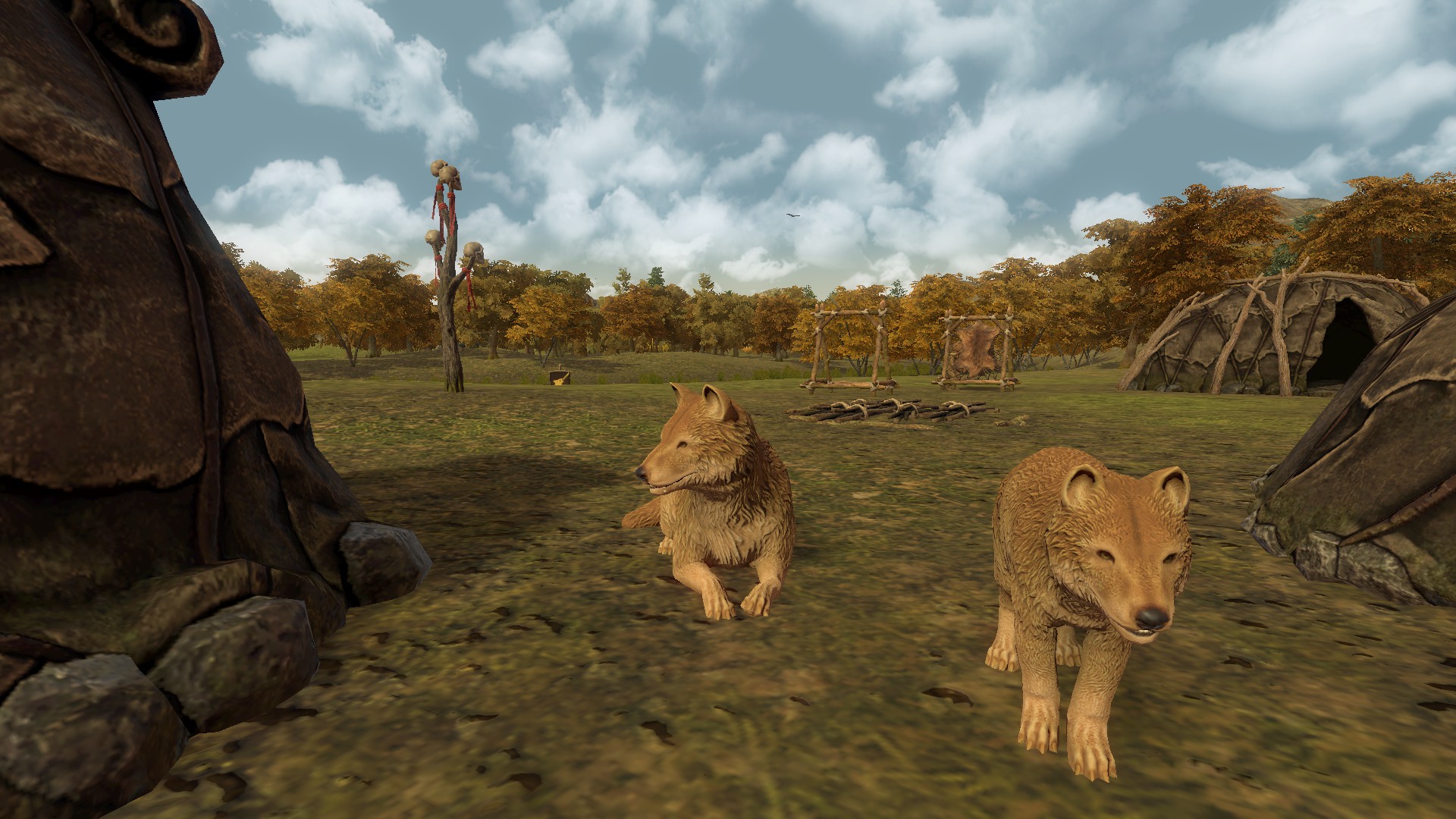
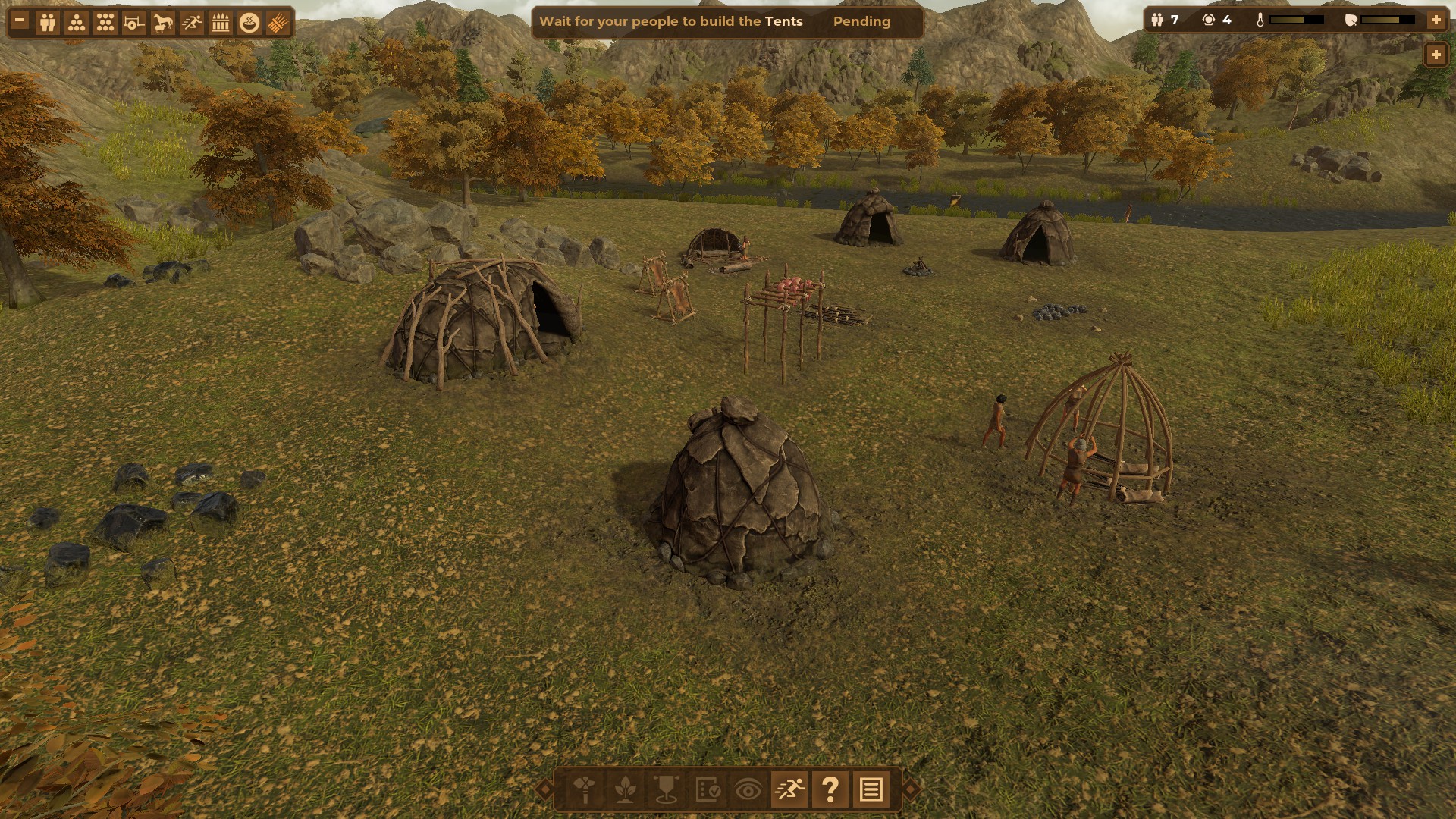
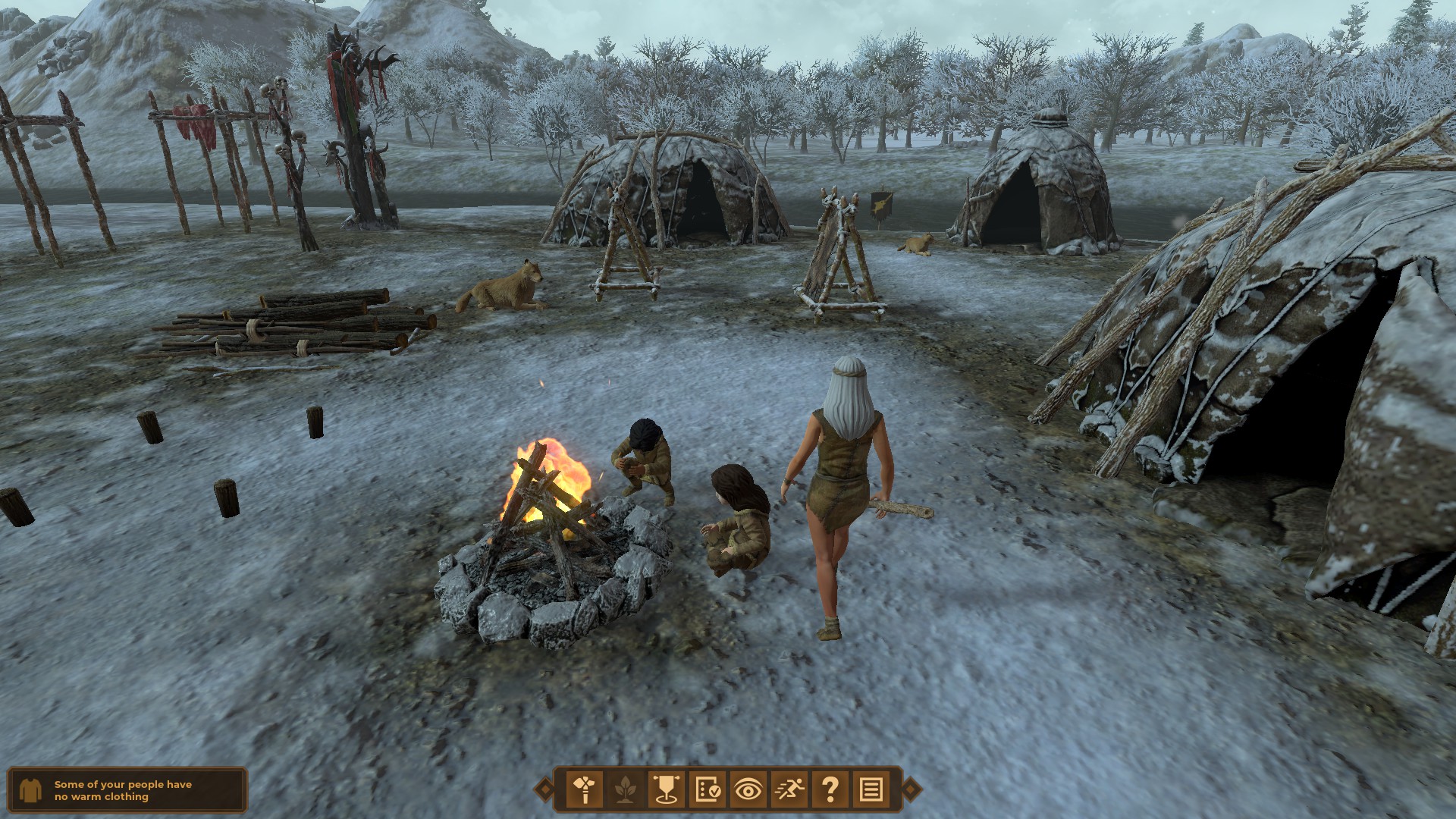
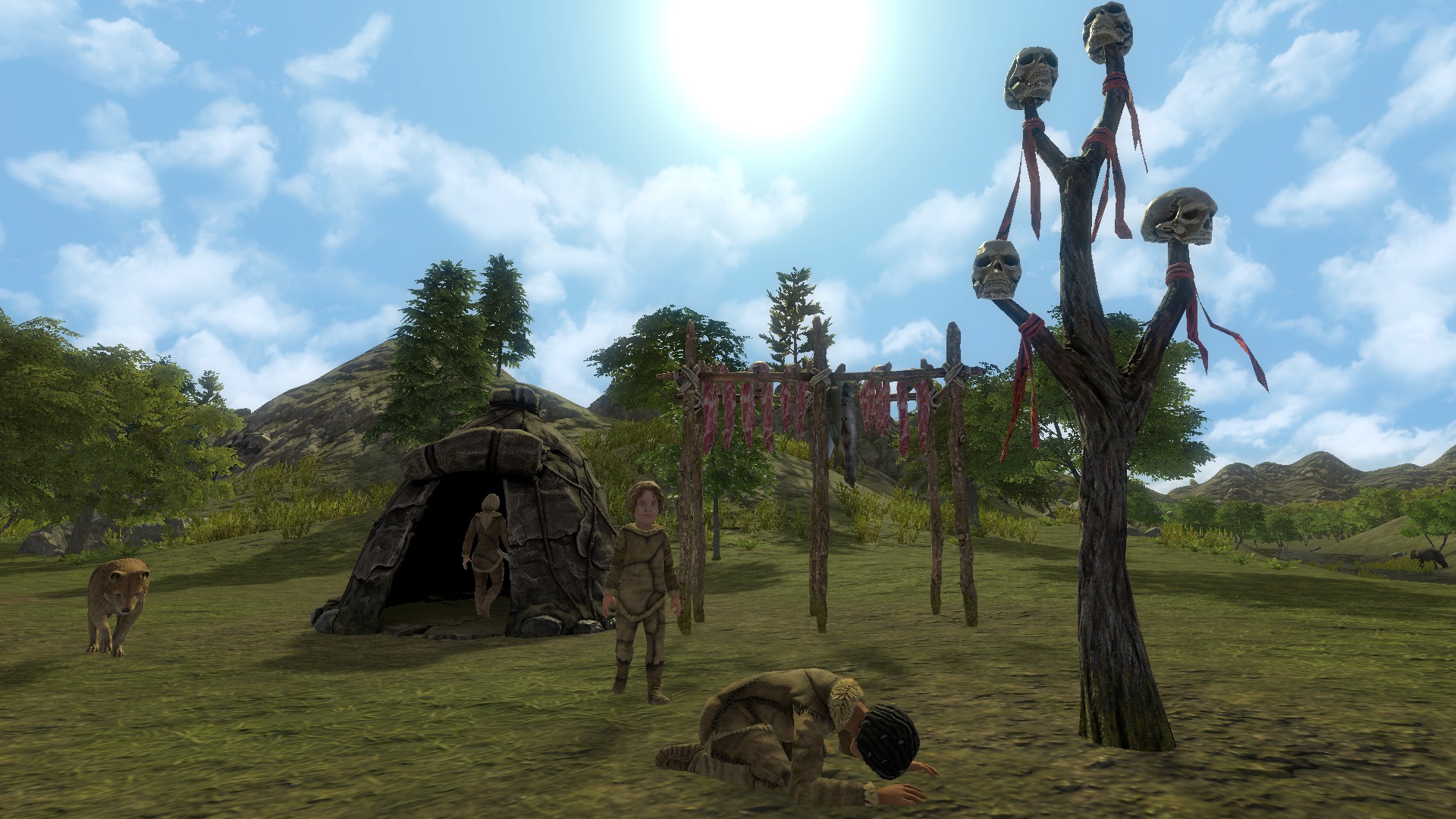
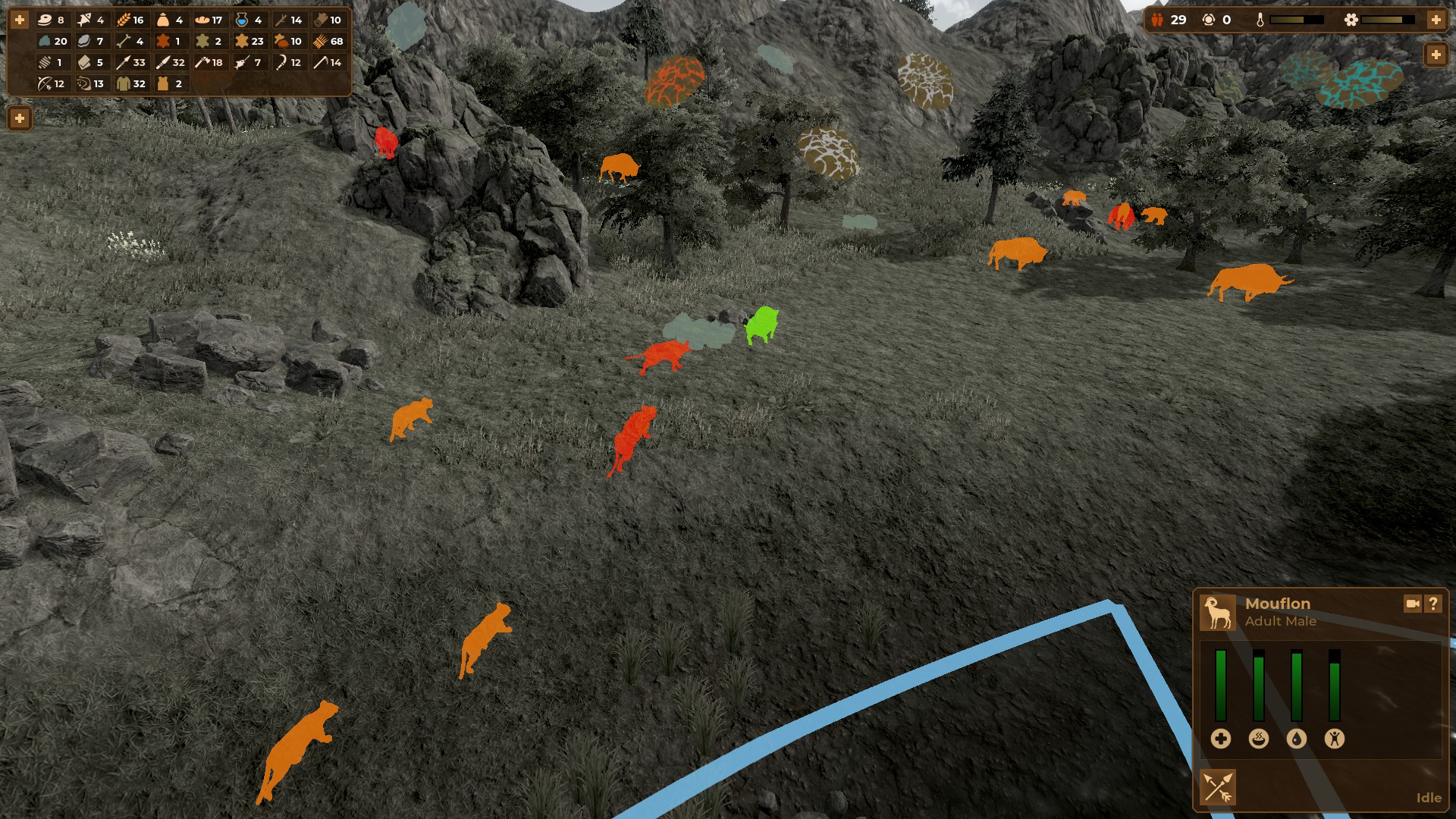
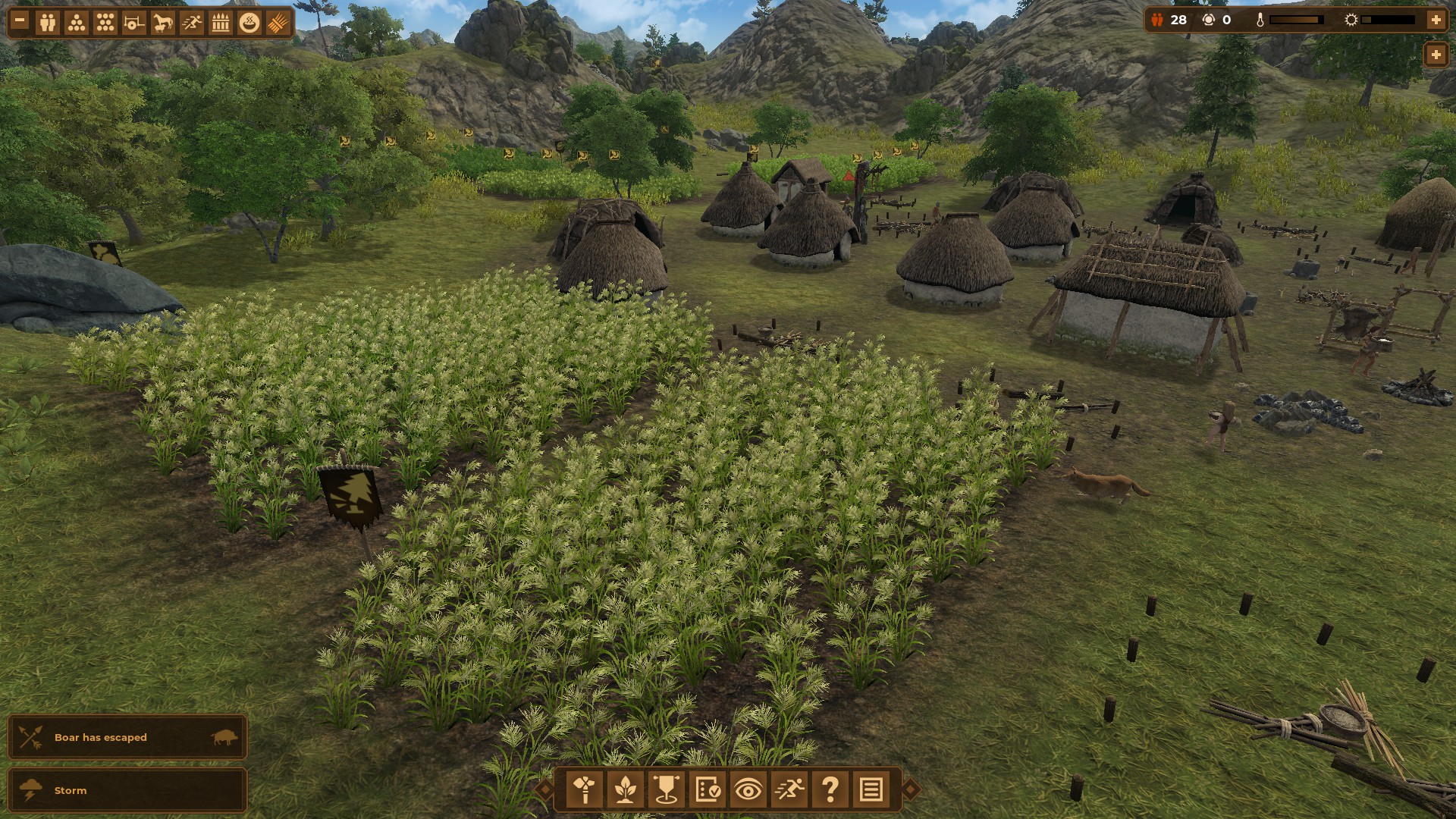
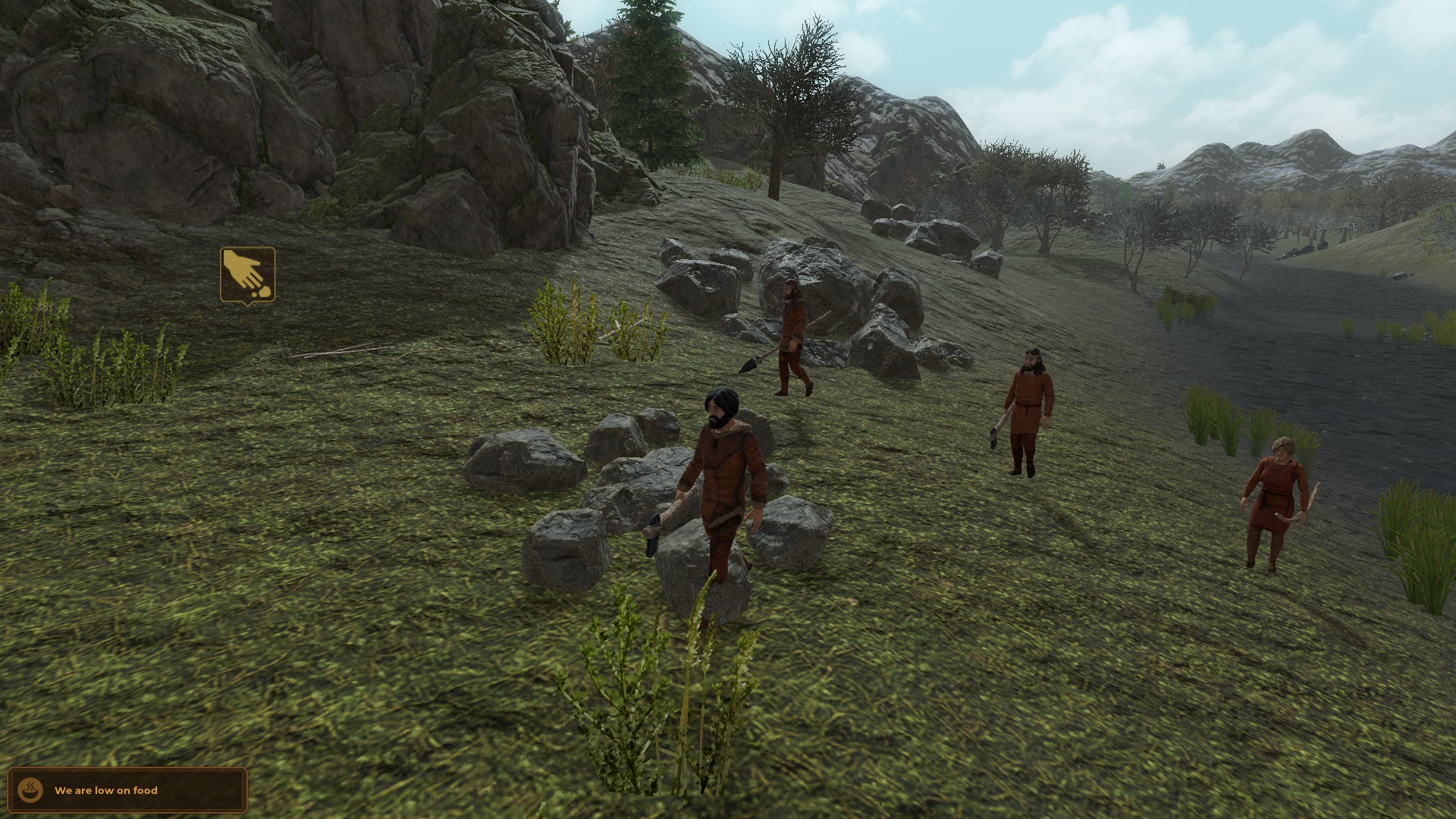
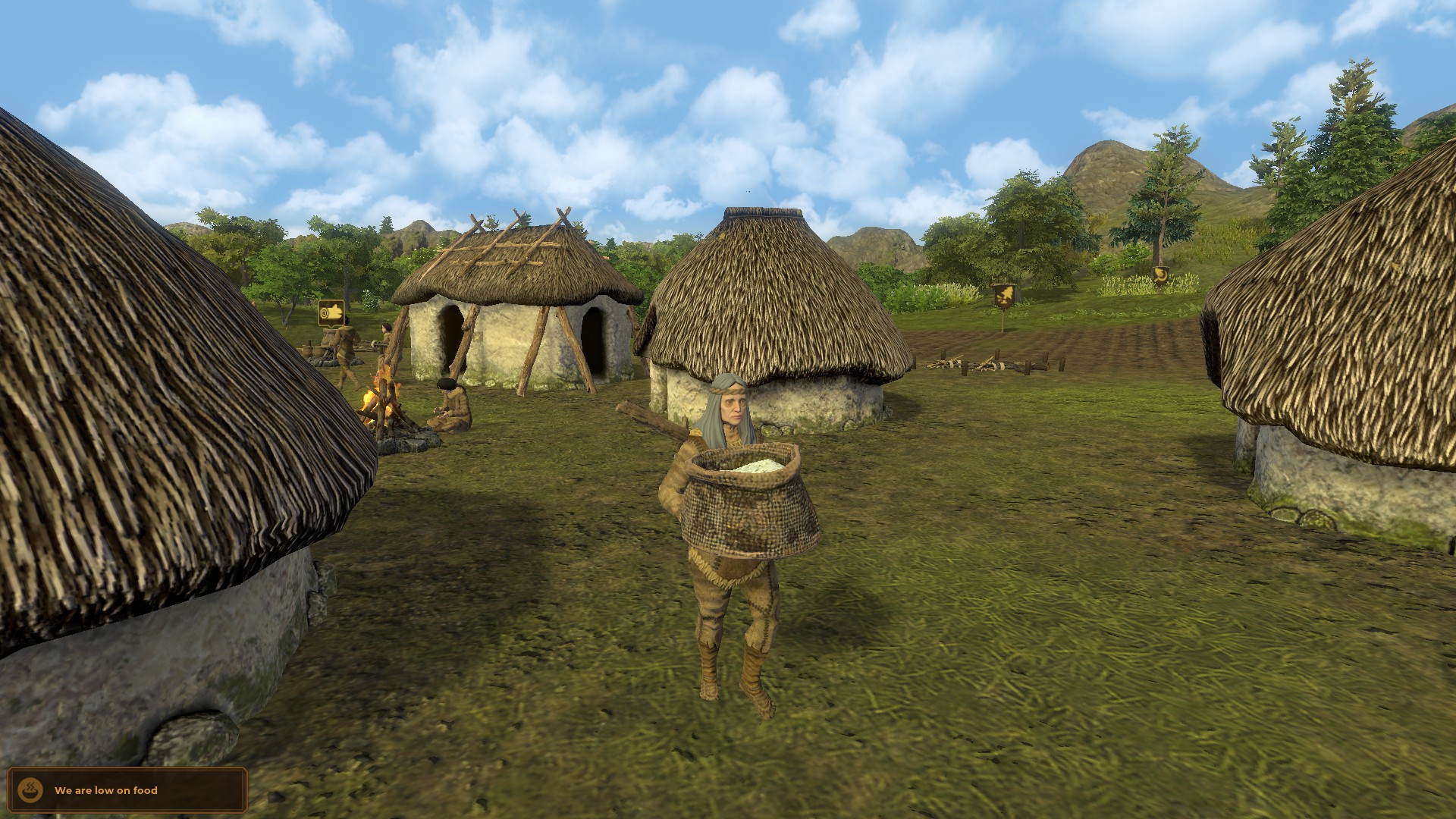
And moving from era to era in Dawn of Man feels really good. Watching tents made of animal skins upgrade into houses with thatched roofs really does give a sense of progress. Seeing a storage hut become a proper building, seeing your villagers fire bows and arrows instead of throwing pointed sticks, and watching new crops grow and be harvested is just as satisfying as seeing gleaming skyscrapers and airports pop up in modern-day city-building games.
I'm now in the Neolithic Age, where I'm raising goats and sheep and pigs, building defensive walls to protect against raiders, and I've begun mining for ore rather than stooping to pick rocks out of the dirt. Progress! I'm already hard at work upgrading from a religion based around skull worship to one based around giant rock worship. Only five more giant slabs and I'll have my own little Stonehenge. I'm sure once everyone can pray to a cold, hard monolith, they'll turn those primitive frowns upside down.

Chris started playing PC games in the 1980s, started writing about them in the early 2000s, and (finally) started getting paid to write about them in the late 2000s. Following a few years as a regular freelancer, PC Gamer hired him in 2014, probably so he'd stop emailing them asking for more work. Chris has a love-hate relationship with survival games and an unhealthy fascination with the inner lives of NPCs. He's also a fan of offbeat simulation games, mods, and ignoring storylines in RPGs so he can make up his own.

